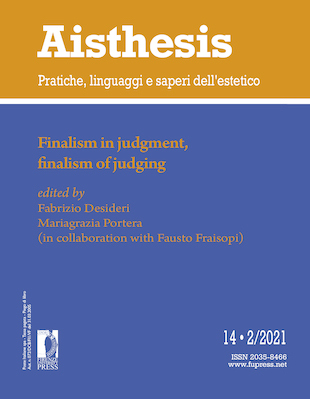Systematicity, Purposiveness, Necessity: from the transcendental deduction of the ideas to the transcendental deduction of the principle of purposiveness of nature
Published 2022-01-24
Keywords
- Transcendental deduction,
- Principle of purposiveness of nature,
- Appendix to the transcendental dialectic,
- Nomic necessity,
- Critique of the power of judgement
How to Cite
Abstract
In this paper I argue for a strong continuity between the transcendental deduction of the principle of purposiveness of nature and the transcendental deduction of the ideas from the first critique. On these grounds, I provide an interpretation of the transcendental deduction of the principle of purposiveness of nature in which I argue that: 1) the necessity of the principle of purposiveness of nature does not derive from its role in solving some specific philosophical problem (e.g. that of induction) but from its relation to a cognitive goal; 2) the representation of nature as conforming to the maxims of judgement is a direct, immediate consequence of a certain cognitive goal (in particular, of what is researched in the empirical investigation of nature; 3) that the necessity of the empirical laws mentioned by Kant in the transcendental deduction of the principle of purposiveness of nature is not so much their nomic necessity, but their necessity as consequences of higher laws.


